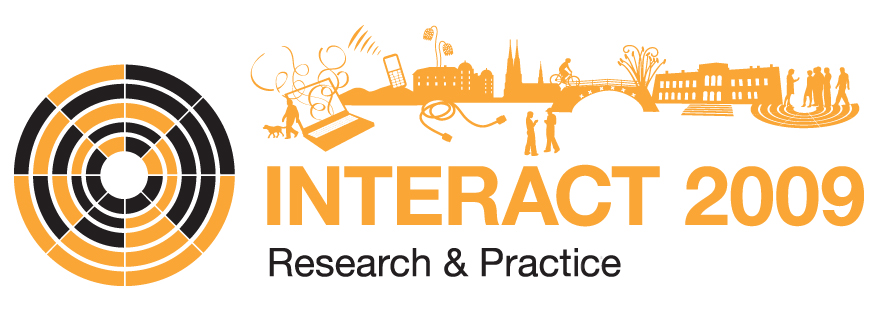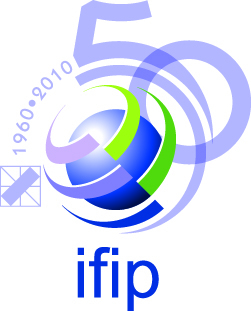VIRTUAL TEAMS AND HUMAN WORK INTERACTION DESIGN - LEARNING TO WORK IN AND DESIGNING FOR VIRTUAL TEAMS
TUESDAY 25 AUGUST 2009
VIRTUAL TEAMS AND HUMAN WORK INTERACTION DESIGN - LEARNING TO WORK IN AND DESIGNING FOR VIRTUAL TEAMS
CALL FOR PARTICIPATION
Rikke Orngreen(1) , Torkil Clemmensen(2) and Annelise Mark Pejtersen(3)
1 Danish School of Education, Aarhus University ([email protected])
2 Department of Informatics, Copenhagen Business School ([email protected])
3 Chair of IFIP TC13 ([email protected])
The organisers of the workshop are members of the 13.6 HWID working group (see http://ilex.cbs.dk/hwid/ and the event-menu on this site for past initiatives).
NEW NEW NEW
Position papers deadline is: 9. August 2009. Acceptance notification is send out on the 14. August 2009
Pre-confirmation is possible, if you would like to meet the early bird deadline of the conference. (You can submit at any time, but no later than 11th of June, and you will receive an answer on the 12th of June).
The boundaries and work processes for how virtual teams interact are undergoing changes, from a tool and stand-alone application orientation, to the use of multiple generic platforms chosen and redesigned to the specific context. These are often at the same time designed both by professional software developers and the individual members of the virtual teams, rather than determined on a single organizational level. There may be no impact of the technology per se on individuals, groups or organizations, as the technology for virtual teams rather enhance situation ambiguity and disrupt existing task-artifact cycles. This ambiguous situation calls for new methods for empirical work analysis and interaction design that can help us understand how organizations, teams and individuals learn to organize, design and work in virtual teams in various networked contexts.
Workshop Objectives, Expected Outcomes and Target Audience
The objective of this workshop is to raise discussion on both findings from and new methods for studying how people work in and design for virtual teams. The workshop will discuss and present current research on virtual teams as a case of human work interaction design. Through the workshop the participants will help increase awareness of the need for deep understandings of the tasks and processes carried out in virtual team working, as well as the cultural, social and organizational context. Both in practice and in research there is an interest in finding, exploring and using new ways of investigating virtual teams learning processes and to investigate how to analyze and transcend findings to design.
The target audience of the workshop is researchers, practitioners and educators, who have experience with virtual teams learning and (re)design processes in human work interaction design. Position papers will be reviewed with respect to their relevance, quality and ability to stimulate discussion.
Workshop Organisation, Topics and Position Papers
This full day workshop begins with presentations (by the workshop organizers and workshop participants) creating a common ground. Prior to the workshop, participants will be asked to come up with interesting dilemmas, paradoxes or possibilities, based on their work in the position papers. These topics and questions will be the foundation of a more detailed round-table discussion facilitated by the organizers. The workshop will end with a thematic view on the day’s discussions.
Participants are required to submit position papers (up to 4 pages). Topics may include but are not limited to:
- Virtual team cases from public, private and educational institutions
- Formal and informal learning in virtual team design situations
- New methods for empirical analysis and design of collaboration within specific domains and fields of practice
- Studies of virtual team analysis and design activities, e.g. virtual teams performing remote usability testing
- Virtual team design needs with respect to both functionality, usability and pleasurability
- Measures of the time, effort and usefulness spend on ‘normal style’ work processes as organizations localize and reduce the ambiguity of new virtual team processes
Please send your submission in word (doc) format, using the standard INTERACT template to: Rikke Orngreen, [email protected]. Accepted position papers will be made available to the workshop participants prior to the workshop, at the 13.6 HWID website. The participants will be asked to read the position papers in advance and prepare a couple of questions or remarks to one of the papers (pointed out by the workshop organizers), thus ensuring all papers are read thoroughly by others than the workshop organizers, giving a good basis for dialog.

